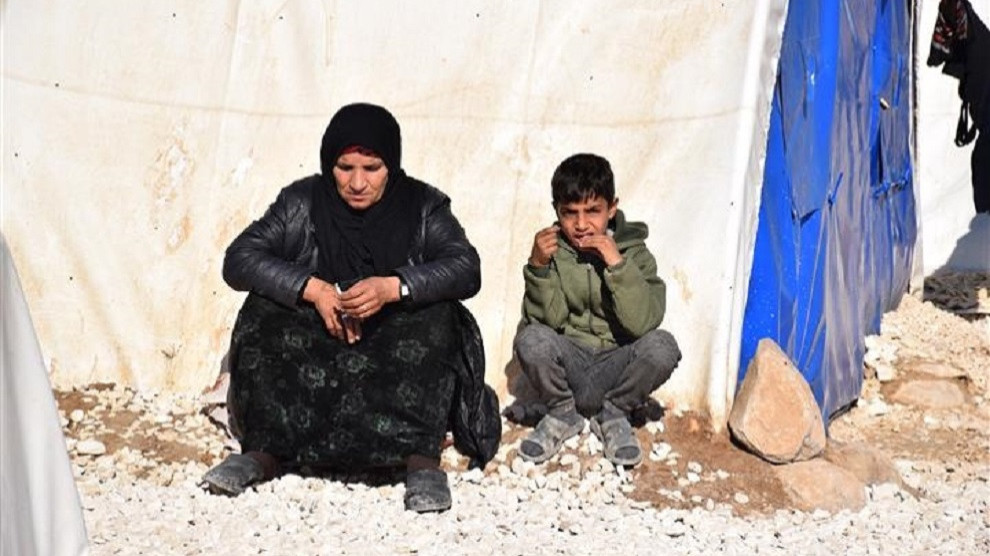Sixty-year-old arrested on return to Serêkaniyê
Sixty-year-old Eyşê Ehmed returned to her village near Serêkaniyê after fleeing the Turkish attacks. There she was arrested by jihadists and placed under house arrest.
Sixty-year-old Eyşê Ehmed returned to her village near Serêkaniyê after fleeing the Turkish attacks. There she was arrested by jihadists and placed under house arrest.

Hundreds of thousands of people have been displaced by the Turkish invasion of northeast Syria carried out with jihadist ground troops. The Turkish state is practising demographic change before the eyes of the world public and is therefore under criticism. Thus it felt compelled to declare that no harm would be done to the civilian population in its zone of occupation. The refugees were called upon to return. The case of the sixty-year-old Eyşê Ehmed shows how the returnees are doing.
Eyşê Ehmed fled from the occupation forces from the village of Erbiyîn near Serêkaniyê (Ras al-Ain) and was accommodated by the Autonomous Administration of North-East Syria in the newly established camp Washokani. In the meantime, 5,700 displaced persons from the region around Serêkaniyê live in precarious conditions in the reception camp, which is located twelve kilometres from Hesekê.
"In the camp I heard that several families have returned their homes," reports Eyşê Ehmed. "Thereupon I wanted to go back, too. When I arrived in Erbiyîn, I was arrested by the gangs. They asked about my children who had joined the SDF [Syrian Democratic Forces] and accused me of hiding weapons in the house. The whole house was searched from bottom to top. They found nothing. They then took pictures of me and forbade me to leave the house.
The sixty-year-old tells that she was very scared. Finally she changed her clothes and sneaked out of the village. "They wanted to hold me down and put pressure on my children," says Eyşê Ehmed. "There has been much looting. My house has also been looted. Nothing of value has been left behind. I was under house arrest. Nobody was allowed to leave the house at night anyway."
Meanwhile Eyşê Ehmed is back in the Washokani camp: "Before the attack we lived very safely. Now we must persevere here under difficult conditions."
RELATED NEWS: